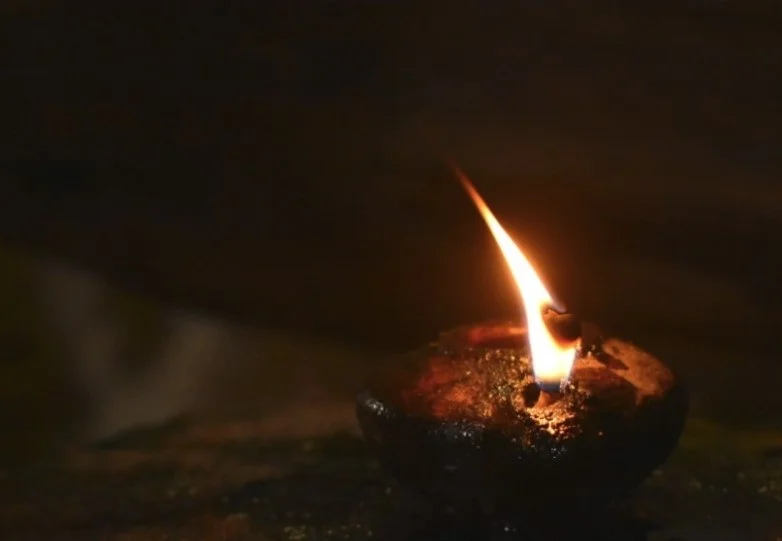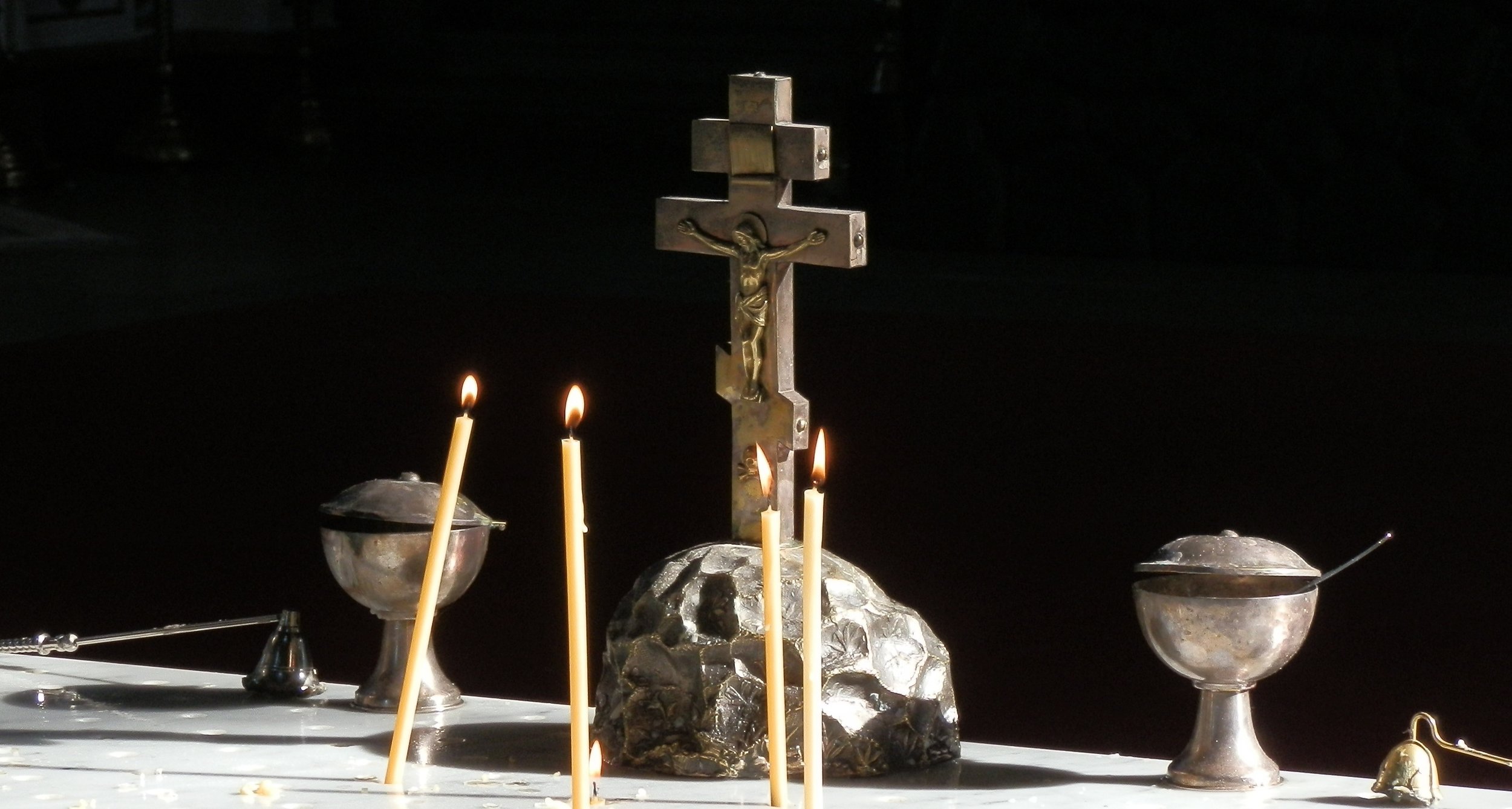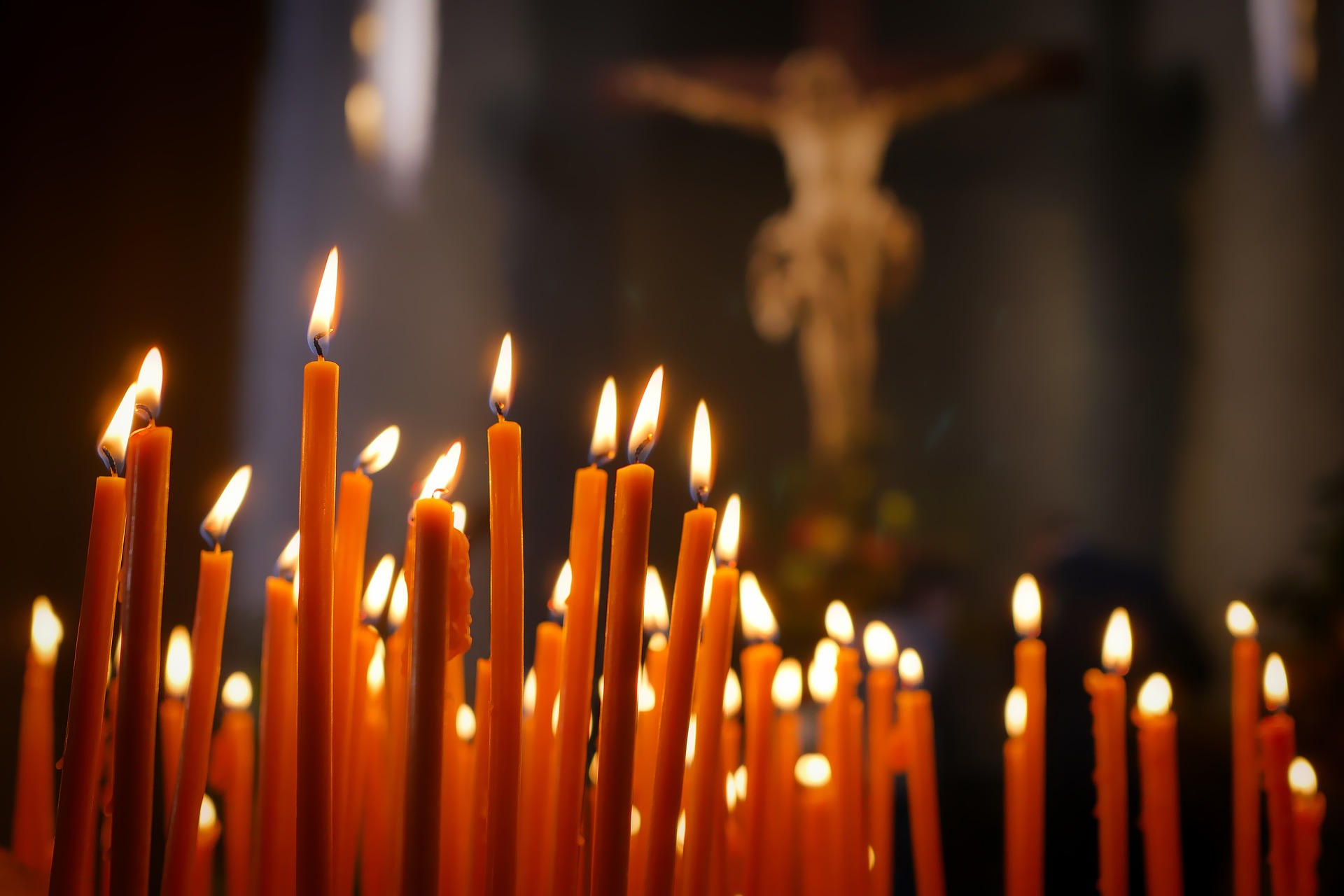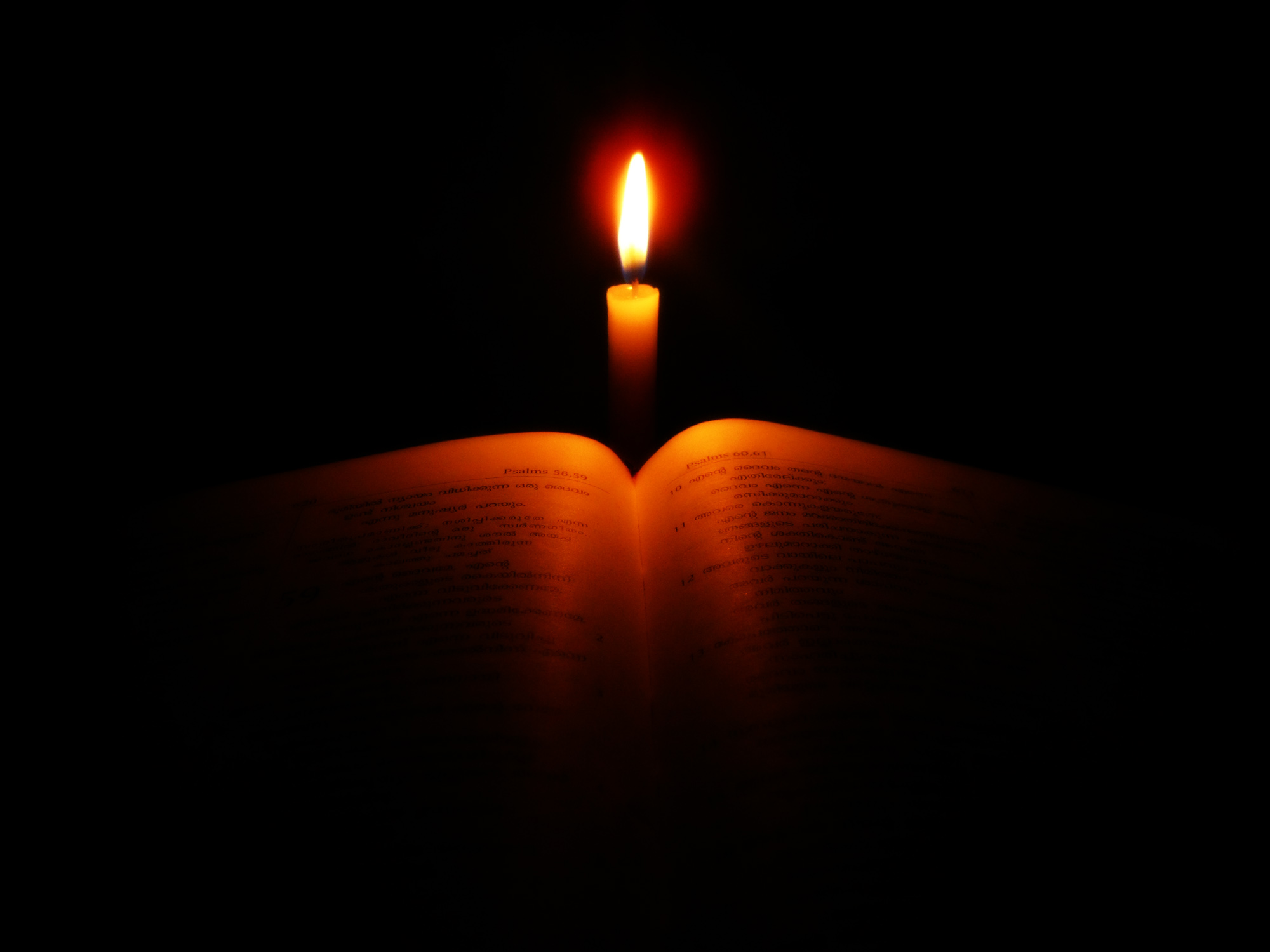Healing Atonement
Basil of Caesarea (330 - 379 AD)
An old clay oil lamp from Nazareth, Israel. Photo credit: Olivia Armstrong.
The Writings of Basil of Caesarea
Basil of Caesarea, On the Human Condition (Amazon book)
Basil of Caesarea, Epistle 261, paragraphs 1 - 3 says:
1. You write that there are men among you who are trying to destroy the saving incarnation of our Lord Jesus Christ, and, so far as they can, are overthrowing the grace of the great mystery unrevealed from everlasting, but manifested in His own times, when the Lord, when He had gone through all things pertaining to the cure of the human race, bestowed on all of us the boon of His own sojourn among us. For He helped His own creation, first through the patriarchs, whose lives were set forth as examples and rules to all willing to follow the footsteps of the saints, and with zeal like theirs to reach the perfection of good works. Next for succour He gave the Law, ordaining it by angels in the hand of Moses; then the prophets, foretelling the salvation to come; judges, kings, and righteous men, doing great works, with a mighty hand. After all these in the last days He was Himself manifested ill [sic — in?] the flesh, made of a woman, made under the law, to redeem them that were under the law, that we might receive the adoption of sons. [Galatians 4:4-5]
2. If, then, the sojourn of the Lord in flesh has never taken place, the Redeemer paid not the fine to death on our behalf, nor through Himself destroyed death's reign. For if what was reigned over by death was not that which was assumed by the Lord, death would not have ceased working his own ends, nor would the sufferings of the God-bearing flesh have been made our gain; He would not have killed sin in the flesh: we who had died in Adam should not have been made alive in Christ; the fallen to pieces would not have been framed again; the shattered would not have been set up again; that which by the serpent's trick had been estranged from God would never have been made once more His own. All these boons are undone by those that assert that it was with a heavenly body that the Lord came among us. And if the God-bearing flesh was not ordained to be assumed of the lump of Adam, what need was there of the Holy Virgin? But who has the hardihood now once again to renew by the help of sophistical arguments and, of course, by scriptural evidence, that old dogma of Valentinus, now long ago silenced? For this impious doctrine of the seeming is no novelty. It was started long ago by the feeble-minded Valentinus, who, after tearing off a few of the Apostle's statements, constructed for himself this impious fabrication, asserting that the Lord assumed the form of a servant, Philippians 2:7 and not the servant himself, and that He was made in the likeness, but that actual manhood was not assumed by Him. Similar sentiments are expressed by these men who can only be pitied for bringing new troubles upon you.
3. As to the statement that human feelings are transmitted to the actual Godhead, it is one made by men who preserve no order in their thoughts, and are ignorant that there is a distinction between the feelings of flesh, of flesh endowed with soul, and of soul using a body. It is the property of flesh to undergo division, diminution, dissolution; of flesh endowed with soul to feel weariness, pain, hunger, thirst, and to be overcome by sleep; of soul using body to feel grief, heaviness, anxiety, and such like. Of these some are natural and necessary to every living creature; others come of evil will, and are superinduced because of life's lacking proper discipline and training for virtue. Hence it is evident that our Lord assumed the natural affections to establish His real incarnation, and not by way of semblance of incantation, and that all the affections derived from evil that besmirch the purity of our life, He rejected as unworthy of His unsullied Godhead. It is on this account that He is said to have been made in the likeness of flesh of sin; not, as these men hold, in likeness of flesh, but of flesh of sin. It follows that He took our flesh with its natural afflictions, but did no sin. 1 Peter 2:22 Just as the death which is in the flesh, transmitted to us through Adam, was swallowed up by the Godhead, so was the sin taken away by the righteousness which is in Christ Jesus, so that in the resurrection we receive back the flesh neither liable to death nor subject to sin.
The Divine Liturgy of Basil the Great, The Holy Anaphora (to receive communion) reads:
“Priest: Together with these blessed powers, loving Master we sinners also cry out and say: Truly You are holy and mostholy, and there are no bounds to the majesty of Your holiness. You are holy in all Your works, for with righteousness and true judgment You have ordered all things for us. For having made man by taking dust from the earth, and having honored him with Your own image, O God, You placed him in a garden of delight, promising him eternal life and the enjoyment of everlasting blessings in the observance of Your commandments. But when he disobeyed You, the true God who had created him, and was led astray by the deception of the serpent becoming subject to death through his own transgressions, You, O God, in Your righteous judgment, expelled him from paradise into this world, returning him to the earth from which he was taken, yet providing for him the salvation of regeneration in Your Christ. For You did not forever reject Your creature whom You made, O Good One, nor did You forget the work of Your hands, but because of Your tender compassion, You visited him in various ways: You sent forth prophets; You performed mighty works by Your saints who in every generation have pleased You. You spoke to us by the mouth of Your servants the prophets, announcing to us the salvation which was to come; You gave us the law to help us; You appointed angels as guardians. And when the fullness of time had come, You spoke to us through Your Son Himself, through whom You created the ages. He, being the splendor of Your glory and the image of Your being, upholding all things by the word of His power, thought it not robbery to be equal with You, God and Father. But, being God before all ages, He appeared on earth and lived with humankind. Becoming incarnate from a holy Virgin, He emptied Himself, taking the form of a servant, conforming to the body of our lowliness, that He might change us in the likeness of the image of His glory. For, since through man sin came into the world and through sin death, it pleased Your onlybegotten Son, who is in Your bosom, God and Father, born of a woman, the holy Theotokos and ever-virgin Mary; born under the law, to condemn sin in His flesh, so that those who died in Adam may be brought to life in Him, Your Christ. He lived in this world, and gave us precepts of salvation. Releasing us from the delusions of idolatry, He guided us to the sure knowledge of You, the true God and Father. He acquired us for Himself, as His chosen people, a royal priesthood, a holy nation. Having cleansed us by water and sanctified us with the Holy Spirit, He gave Himself as ransom to death in which we were held captive, sold under sin. Descending into Hades through the cross, that He might fill all things with Himself, He loosed the bonds of death. He rose on the third day, having opened a path for all flesh to the resurrection from the dead, since it was not possible that the Author of life would be dominated by corruption. So He became the first fruits of those who have fallen asleep, the first born of the dead, that He might be Himself the first in all things. Ascending into heaven, He sat at the right hand of Your majesty on high and He will come to render to each according to His works. As memorials of His saving passion, He has left us these gifts which we have set forth before You according to His commands. For when He was about to go forth to His voluntary, ever memorable, and life-giving death, on the night on which He was delivered up for the life of the world, He took bread in His holy and pure hands, and presenting it to You, God and Father, and offering thanks, blessing, sanctifying, and breaking it.”
Other Resources on Basil of Caesarea
Ellinas Multimedia, Saint Basil the Great - A Documentary on the Life of St. Basil the Great. The Faith, Hope, and Love Community, Apr 27, 2023. A 30 minute video.
Sources of Atonement Theology
These resources explore the foundation of “Medical Substitution” as the best understanding of the Bible, and the original understanding of the church. There are also links to books, web articles, etc. from representatives of the three broad Christian traditions.





